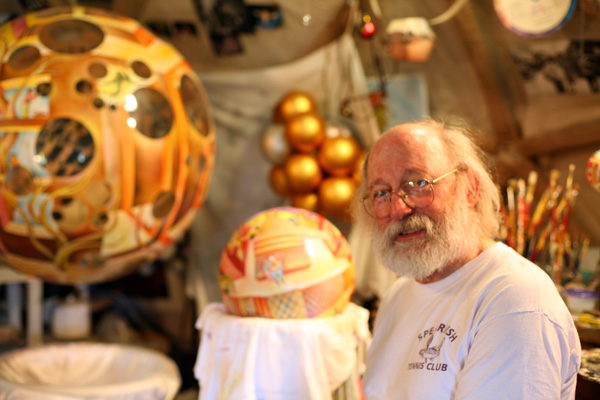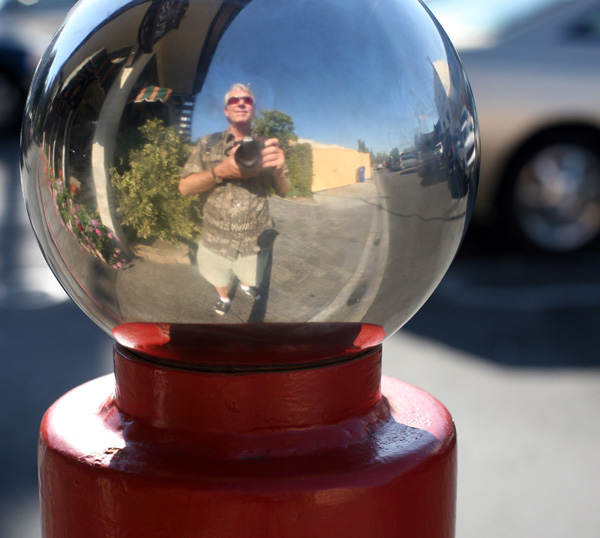[Note that I posted a revised and expanded version of this post as "New SF Futures II" in July, 2010.]
For the last three weeks I’ve been hung up revising my new novel and two of my old ones, but I hope soon to get back to thinking about a new novel.

The other day I was looking at the Tor.com SF website, scanning through an interesting and well-written post by Jo Walton, “The Singularity Problem and Non-Problem,” [I also scanned through the many comments on the post] and I picked up the idea that some SF readers (and writers) are unhappy with the notion that SF’s content should change over the years.
Walton herself speaks fondly of “the kind of SF that I like best, the kind with aliens and spaceships and planets and more tech than we have but not unimaginable incomprehensible tech…” And some of the commenters take this a bit further, even questioning whether true artificial intelligence is even possible.

Change is of course something that happens to any living art form—think of painting or popular music or literary novels or even TV sit-coms. Yes, it’s sad to see Golden Ages slip away, but it’s sadder still to keep doing the same thing. Inevitably the old material goes stale and the fire goes away. I’m not saying it’s become impossible to write fresh novels about aliens and spaceships and planets. But maybe it’s become a task as difficult and quixotic as writing a fresh doo-wop song.
But why not a new kind of song? And why not a new kind of SF novel? This is, after all, the twenty-first century.

If you think about it, it’s quite unreasonable to regard, say, the physics and sociology of classic space opera as “rules” about science-fictional futures. These are all things that writers made up in, like, the 1930s, and which later writers polished and refined. The “rules” have no Higher Truth and they’re unlikely to apply to any actual future. They’re only stories that people made up for fun, and there’s absolutely no reason why we can’t keep changing the rules.
I’m certainly not a whole-hog, card-carrying Singulatarian—as I discussed in a pair of blog posts in March, 2008, I don’t see virtual reality as ever eclipsing our ambient quantum-computing “real” reality. This said, I do strongly feel that, down the line, intelligence will be ubiquitous—that’s the main theme of my novels Postsingular and Hylozoic.

What’s interesting to me is not the beating or eating of dead horses, but rather the search for genuinely new science-fictional scenarios. For me, SF is the fun-loving hipster sister of Big Science. SF finds the vibby spots first. Sometimes the spots are gone in the morning, but sometimes there’s time for Big Science to trundle in the Measuring Machines and Theory Generators and capitalize on what we fey writer types have unearthed.
Here’s a more or less random list of some themes that I currently find appealing. Feel free to post comments with your own suggestions for (underused) SF themes!

Magic Doors
I’ve always liked the idea of magic doors to other worlds, also known as Einstein-Rosen bridges. I wrote about them in The Sex Sphere, for instance, and I thought about them again this summer in Dick Termes’s studio. I like that idea, I like to think of a character with spheres/doors swarming around him or her like fireflies. Like old memories. As it happens, Dick just sent me an email encouraging me to think of his spherical paintings in this way:
“To be living in a world where these spheres float in. Spheres like my work where you can see from outside what is really an inside view. With some effort you can enter these spheres and get on the inside which takes you to those real worlds. Some are real worlds some could be subconscious worlds etc. So, you could go from one world to the next by finding these spheres to enter. You would be able to look at the outside of the inside scene before entering…”

Dreams and Memories
We’ve seen plenty of virtual reality tales in which people mistake an illusion for a reality. But I think there’s still some interesting things to be done with ordinary dreams. Waking up inside them? Finding out that they’re really happening in a higher dimension?
In the mental front, we might also consider viewing memories as in some sense real. Maybe memory is a form of time-travel, and you really can flip back into the past or, more oddly, bring people from your past into your present.

The Afterworld
I’ve always thought there should be more SF that speculates about what happens to people after they die. This can shade into fantasy, of course, but giving it an SF slant would be interesting. Certainly it’s nice to speculate that there’s some kind of underworld…rather than nothing.

Quantum Computational Viruses
The current trend is to view any bit of matter as carrying out a so-called quantum computation. These computations can be as rich and complex as anything in our brains or in our PCs. One angle, which I explored a bit in Postsingular and Hylozoic, is that ordinary objects could “wake up.” Another angle worth pursuing is that something like a computer virus might infect matter, perhaps changing the laws of physics to make our world more congenial to some other kinds of beings.

New Senses
How about some new senses—other than, say, telepathy or radio-wave-sensitivity? Things we might notice more acutely: viscosity, temperature, pressure, electrical charge, neutrinos, Higgs bosons, sterile neutrinos, quarks, “ghosts.”

The Holographic Universe
Some physicists say that our 4D space is a kind of illusion built up from a two-dimensional pattern…somewhere. Is it maybe a comic strip? Let’s go meet the artist!

Why?
Why are we here? What’s it all for? What’s the meaning of life? Why does anything exist at all? Why is there something instead of nothing? Surely SF can come up with an answer.

The Subdimensions
For too long we’ve let the quantum mechanics tell us that there’s nothing smaller than the Planck length. Let’s view this tiny size scale as a membrane, a frontier, but not a wall. We can in fact go below it…into the land of the subdimensions. Possibly the subdimensional world is a kind of mirror version of ours. Certainly aliens can visit us from there…no need for all those star ships. Just focus on a speck of dust.

An Infinite Flat Earth
What if Earth were an endless flat plane, and you could walk (or fly your electric glider) forever in a straight line and never come back to where you started? The cockroach zone! The kingdom of the two-headed men! One night there’ll be a rumble and, wow, our little planet will have unrolled, ready for you to start out on the ultimate On the Road adventure.









August 25th, 2008 at 2:21 pm
Great,compelling blog. I followed you over from tor.com and am very glad I did. your writing about doors very much made my day brighter. i love your take on things.
August 26th, 2008 at 5:00 am
Charles Stross wrote a great short story about a flat Earth. It isn’t infinite but REALLY big. Google “Missile Gap” by Charles Stross and you can read it free online.
Another flat Earth story I enjoyed is “The Edge of the World” by Michael Swanwick, which is available in the Dozois Year’s Best Collection #7. Unlike the Stross story, this is a “regular” sized flat Earth, but it’s a LONG way down at the edge.
Although both stories are excellent, they are a little depressing. I’m looking forward to your hopefully feel-good story about a truly infinite flat Earth!
As for new themes I liked Carl Sagan’s idea in Contact about messages in the digits of Pi, so maybe that could be expanded on. Have you read this discussion with Pickover about the possibility we are all encoded in Pi?
http://sprott.physics.wisc.edu/pickover/pimatrix.html
August 26th, 2008 at 7:07 am
Great post- I especially liked the infinite flat earth concept, mostly because it gives a writer the loophole by which to explain any and every bizarre occurrence (in an infinite world of infinite possibility…), but also because it’s a nice thought to carry around in your head.
August 26th, 2008 at 7:09 am
I like the idea of SF exploring new senses, and there’s even some research in that direction underway, as well as experimentally adding a new sense via hardware. As we continue to enhance our perceptions through technology, there will come a time when it is difficult to tell the enhancements from our natural attributes, or perhaps we will take the plunge to make the enhancements natural. There is much ground still to cover, there.
August 26th, 2008 at 7:45 am
On the topic of Dreams and Memories, I’d like to point you towards The Potemkin Mosaic, my hypertext novel that was serialized last year at Farrago’s Wainscot (the above URL is the expanded edition, with tighter navigation). Ostensibly the adventures of a psychopharmacologist who fears someone is editing his memories, it spirals off into the hinterlands of dream and consciousness.
(Farrago’s Wainscot is a quarterly journal of “experimention, decay, and the problems with form.” Where things are never quite what they seem, and the fiction is . . . slippery.)
Yeah, the idea of doors is fascinating too. The Termespheres are very cool.
August 26th, 2008 at 8:54 am
I liked Jo Walton’s post and I like this one. Thanks!
In the mental front, we might also consider viewing memories as in some sense real. Maybe memory is a form of time-travel, and you really can flip back into the past or, more oddly, bring people from your past into your present.
This is one of the things my novel The Z Radiant (pubbed by Five Star in 2004, with a truly inappropriate and terrible cover, sadly) is about, actually.
August 26th, 2008 at 9:45 am
enjoyed this post … regarding the afterlife, have you read “passage” by connie willis? recc’d.
August 26th, 2008 at 10:08 am
Greg, I wrote a “Pi in the Sky” story in 1981, well before Sagan’s Contact came out in 1985, so really I should get some credit when people talk about the notion of pi possibly encoding all wisdom—it’s always bothered me that the idea is fully ascribed to Sagan. By way of authentication, I just posted a PDF of the “Pi in the Sky” tale online. Enjoy!
Oh, and thanks, Greg, for the tip about Stross’s “Missile Gap,” and thanks to the rest of you commenteers for the other remarks and pointers.
August 26th, 2008 at 11:48 am
I like your taking a challenge to the idea of a Singularity in SF as an excuse to throw out a raft of story ideas that are just as unconventional. Why get stuck on a single idea or theme, when we have the entire universe to roam around in?
The idea of the infinite flat earth has some of the dramatic benefits of Tegmark Universes. You just need something a little more, ah, mobile, than an electric glider to travel around them. I thought Damien Broderick did well by Max Tegmark’s ideas in the Players of the Contest of Worlds series.
August 26th, 2008 at 11:57 am
Great post – thanks for sharing the ideas! I like the idea of the afterlife as SF fodder – imagining where Carol Anne would have gone if she had gone into the light is much more exciting than what we hear about in Sunday morning sermons. (Didn’t Farmer’s World of Tiers take that on a bit? I haven’t read that since I was a kid!). Thanks for the great post, you’ve been bookmarked!
August 26th, 2008 at 12:22 pm
What if what we called ghosts were an intermittent glimpse of reality and we ourselves were the ghosts embedded into a further reaching technological future. As technology grows so does the frequency of sightings until the veil is broken. A clash of cultures begins…
Great post…really gets the juices flowing. You look back at genres like Steam Punk and realize that the next undiscovered genre is waiting to be written. It’s not wrong to create a work that can’t be tied back into a History Channel special.
August 26th, 2008 at 12:44 pm
Cone shells in 1981. I hadn’t realized your fascination with them went back that far. It was fun to see this story again.
August 26th, 2008 at 6:04 pm
In terms of new hard sci-fi going to new places, I believe that the budding movement of Neuropunk is taking us there.
Honestly, Peter Watts’ Blindsight blew my mind, not only for the realistic space travel and somewhat analytical “first contact” concept, but for the exploration of what makes us human, how weak our whole neural system is, and a look at gradual attempts for actively attempting to achieve a state of singularity, only to never get there.
Actually, one of my favorite lines is “Maybe the Singularity happened years ago. We just don’t want to admit we were left behind.”
Yes, the whole thing is grounded on our current understanding of how the mind works, but it really went to a whole new place for me.
As for ideas, I’ve been toying with the idea of control of quantum universes. Imagine if you will, the chance of choosing what universe you should keep living in. If given a choice, Schrodinger’s cat will remain effectively immortal. What would it be like to discover it at first? How would it affect society, knowing that there’s another universe where things are better, but it just stands unreachable? Of course, that’s assuming a Many Worlds multiverse.
August 26th, 2008 at 11:28 pm
What ever happened to the old school type of SF that explored the possible negative consequences of science and technology just as much as (or perhaps even more than) the positive? I really think that SF has lost its way because of it fetishization of science and technology. Perhaps the fetishization in the culture overall has created a world in which SF no longer has a purpose–these days SF is all about longing for even more technology, never about critiquing it. So here we have a bunch of “new” ideas for SF, all of them still entirely dependent on the worship of science. Even the Mundanes insist upon all tropes being based on a very narrow definition of the scientific paradigm. Here’s a new (old) idea for SF: What about a future in which everyone suddenly realizes that Science was corrupted a long time ago, has confused its ends with its means, and is actually responsible for the challenges our civilization now faces, so that for the problems of our time there are no technological solutions possible, only social ones. Imagine how many books could be written about possible futures in which life includes more than just science.
August 27th, 2008 at 1:09 pm
To anonymous—Short answer: don’t read SF if you hate science! It’s like, don’t read Romance novels if you hate love; don’t read Westerns if you hate horses; don’t read detective novels if you hate guns; don’t read horror if you hate blood.
This said, you do have a point. As I say, I’m dreaming of something fresh and new…and it would be kind of nice to have SF without our current notion of science. A world where science if more like lore, or magic, or mental tricks.
One new book that seems to be SF with a different slant on sciencei is Neal Stephenson’s ANATHEM, which seems both futuristic and, like, medieval…though I’m only about 20 pages into it.
As for the old-school ecocatastrophe books…I feel like I get more than enough of that gloom and doom downer ain’t-it-awful stuff on the news, it’s one of the staples of media mind control, keeping us desperate and scared so we’ll do what the Rulers say.
Ecocatastrophe or post-apocalypes SF was big in 50s-70s (Cold War), but it’s still a viable subgenre, actually Kim Stanley Robinson recently wrote a very good Global Warming trilogy that starts with FORTY SIGNS OF RAIN. A good writer can make any style of SF sparkle, really.
August 27th, 2008 at 1:09 pm
It seems like most of these are more fantasy driven than sci-fi. The Myst series already tackled the “doorways to alternate realities” situation with both the games AND the trilogy of books (which are a fun read!). Wouldn’t you say Sliders did it with the sci-fi angle?
August 27th, 2008 at 3:23 pm
Rudy, thanks for posting “Pi in the Sky”. I enjoyed it! I didn’t mean to imply I thought Sagan invented the idea of messages in Pi. I have only read a small fraction of the SF out there so I never assume any author invented an idea. Besides there are plenty examples of independent invention. Do you think you came up with that idea first? There is some discussion on the Wikipedia page for “Contact” about “a message from God in Pi”, but I see no references to “prior art”. (Maybe some Wikipedian should add a note about your story there…)
I’ve always wondered if God can comprehend the entire infinite sequence of the digits of Pi. Wouldn’t it fill up his brain? What about the infinite depths of the Mandelbrot Set?
Anyway, I hope you enjoy Missile Gap. After our discussion of “Contact” here you should have a nice “Speak of the Devil!” moment in that story.
August 27th, 2008 at 4:09 pm
Rudy–Thanks for the comments, but to address your first paragraph, there should not be a binary choice where if you don’t worship science then you must hate it, and therefore SF isn’t for you. Science is an ideology; having “science fiction” be limited to only positive portrayals of science without the negative would be like having something called “political fiction” that is limited to enthusiastic portrayals of totalitarian states, and if you don’t like those, then don’t read political fiction! SF used to examine science from all kinds of angles, some good, some bad. Now we have a generation to whom Science is God, and the critique of Science is heresy. And then we have a decade long discussion about what’s wrong with SF, and everyone scratches their head.
August 27th, 2008 at 7:38 pm
Re. Magic Doors, last year’s Valve videogame Portal was based on these goodies, and a gamer site explains how they worked
http://www.gamasutra.com/view/feature/3770/games_demystified_portal.php
Thanks to Valve writer Marc Laidlaw for the tip.
August 28th, 2008 at 5:35 am
The other night I had a lucid dream in which a dream character told me everyone in the dream world is real somewhere in the multiverse.
August 28th, 2008 at 10:15 pm
SF isn’t about the future, or about change.
At most it is about the present’s (or the past, for past SF) fears, hopes and dreams about the future and the changes it will involve.
We used to naively believe that SF could ‘predict’ the future, in broad outline if not in detail. Heinlein’s future history is a classic example.
And folks, Heinlein was a brilliant and very well-informed guy with a hell of an imagination. And he was utterly, completely, not-on-the-same-planet just plain -wrong- about virtually everything when he tried to predict the future.
Like, dude, where’s my aircar? Where’s my giant rocketship? Where’s my dilating door? My intelligent computer with the winsome, charming personality to help my revolution?
In point of fact SF is right about the future only in the way that shrapnel hits people or a stopped clock is right twice a day. Make enough predictions and -some- of them will come true, but it’s accidental.
Even professional futurists are better at predicting the future than most SF writers, and they’re pretty damned bad — I know ’cause the Pentagon recently paid me to hang out with some of them and blue-sky future weapons development.
At least I -know- I’m bad at it, and that’s because I study history a lot. People have -always- been bad at it; otherwise you could outguess the market.
SF is even worse at predicting -technological- change than it is at the social and political kind, and it’s bad in a repetitive, predictable way.
The besetting fault of near-future SF is straight extrapolation of whatever technology is currently preoccupying society. Airplanes, rockets, whatever’s sexy and hot and floating around the zeitgeist.
Currently it’s computers and the promise/threat of AI.
And when SF gets really goshwow about a technology, you can tell with mathematical certainty that that technology is past its point of maximum rapid progress and is already starting to plateau out, or will soon.
Remember, technology in general doesn’t advance.
-Particular technologies- advance rapidly, for a while, and then they don’t.
The basic discoveries are made, easy stuff gets done, then it gets hard, and the hard stuff doesn’t get done, or gets done very slowly indeed.
Hence we don’t have scramjets or SSTO’s.
We have planes and rockets that an aeronautical engineer from 1950 (and probably from 1940, and possibly from 1930) would understand instantly, in principle if not in detail.
Hell, German engineers in the 1940’s were making plans for skip-bombers that would circle the planet by bouncing off the upper layers of the atmosphere! And they thought they could build them within three or four years, with enough R&D money!
747’s and F-16’s would look -tame- to those guys. Our satellite launchers are just V-2’s on steroids. The space shuttle? Von Braun had that idea when my father hadn’t started shaving.
Meanwhile, SF generally misses the technologies that are just starting their phase of revolutionary impact. They don’t (yet) have the emotional impact, the degree of culture-spanning -attention- that makes people’s subconscious want to write about them.
Biotech is one that’s just coming in. Writers are consistently underestimating it. Now, that’s a technology which will be doing really radical things in the 2020’s.
Meanwhile IT will have flattened out. It just won’t pay to do the same things faster.
As for AI, the problem with that is that it’s a metaphor, “the brain as computer”. Which is an interesting and useful literary trope, but beware of literalizing the metaphor out here in the Real World(tm).
The brain isn’t -really- a computer, any more than it’s a watch or a toaster or a ghost; we don’t know what it is, or how it works beyond a very crude level; we don’t know how it gives rise to our minds. We don’t even know how a bug’s brain gives rise to, for example, volition.
As a physicist said, you’re no more likely to get consciousness out of a computer, no matter what its CPU speed and no matter what its software is, any more than you are to get wet by jumping into a swimming pool full of ping-pong-ball models of water molecules.
I’m a materialist and our brains are material objects, so -theoretically- it should be possible to duplicate or even improve on them and produce artificial minds.
But we don’t have any inkling of how to do that yet. All attempts have been pathetic failures, -with no trend of improvement over time-.
Theories of the mind are still at a pre-scientific, Aristotelian level, the happy hunting-ground of the non-falsifiable hypothesis and the just-so story.
We can make machines that do some of the things brains do — calculate, for example.
But that’s like saying a motor scooter will do some of the same things as legs; it’s true, but meaningless in this context. A mechanical calculator can “add” and so forth too, and nobody expects that to become conscious. Expecting an electronic calculator to do so is -exactly the same thing-.
It’s also quite possible that we just aren’t smart enough to understand our own minds, the way a chimp isn’t smart enough to do algebra.
And we’re -certainly- not going to get AI by accident.
August 28th, 2008 at 10:32 pm
Anonymous: science isn’t an ideology. It’s a method, a set of intellectual techniques, a way of asking questions. Call it the world-view of analytical reductionism.
When used as the instructional booklet describes, science produces and tests hypotheses, and determines which hypothesis currently:
a) most parsimoniously accounts for the observable data, including ability to predict data not yet observed; is
b) falsifiable, and;
c) hasn’t been falsified. Yet.
Science doesn’t deal in “truth”, just in information, which is more or less accurate but never “true” in the sense philosophers used the term. As an institution it enables us to accumulate increasingly accurate data and descriptions.
What we -do- with the data is another matter entirely.
Science isn’t prescriptive. No amount of science will tell you what’s good or bad, or what you should want, or what you should do with the information.
It’ll just give you the best-possible-at-this-moment description of how matter and energy interact, neither more nor less.
Expecting more of it is like expecting music from a lawnmower.
Now, “scientism” is an ideology, as is “progress”(*). “Social Science” is an ideology, as “scientific socialism” was. Science -proper- is just a way of finding out things.
Science has a lot of cultural prestige because it has enabled us to do many important things and learn many interesting things, but most people don’t understand the scientific method or what it does.
Hence everybody and Uncle Vasha and Tiny Tim try to paste the label “science” or “scientific” on their bee-in-the-bonnet hobbyhorse of choice. Beware of this phenomenon. Human beings have an inbuilt desire to know the truth, but science, as I said, has nothing to do with truth, only accuracy.
(*) a gross example of this is confusing biological evolution with progress, as if “well adapted” were the same thing as “superior” or “better”. You can describe scientifically whether an organism is well adapted to a particular environment, but it’s meaningless (or at best tautological) to say that makes it superior.
Whole political ideologies, and very nasty ones, were built on this misunderstanding.
August 29th, 2008 at 7:52 am
S.M.Stirling really gets my goat. In fact it was his comments on Tor.com—which he’s now copied here—that got me energized enough to put up my post. I’m going to rebut two of his passages.
(Stirling 1)
(Re. 1) You could in fact get “wet” if your “ping-pong-ball models” of water molecules were using atomic-sized ping-pong balls. And that’s kind of where we’re at with computers: as you get to the exabyte level of memory and beyond, with quintillions of bits, the components of the system are, relative the computer, of a submicroscopic (if not atomic) size.
Also note that you might well get “wet” if you were “jumping into” a computer model of a swimming pool via virtual reality that was tightly coupled to your nervous system.
And keep in mind that if we switch to quantum computing, the elements of our computers might actually be atoms.
In any case, the brain already is a computer (in the sense of “system obeying deterministic rules”) using an operating system that’s evolved over millenia—and it produces consciousness. Stirling grants this point, but then tries to take it away:
(Stirling 2)
Claims (a) and (c) are false or mislleading, and (b) requires further comment.
(Re 2a) Nobody is expecting an electronic calculator to become conscious, anymore than anyone expects a single stone to be a cathedral. We’re currently hoping for machines with a quintiillion bytes and a quintillion cycles per second to become conscious.
(Re 2b) The issue that we aren’t smart enough to understand our own minds is a serious problem. It relates to Godel’s Incompleteness Theorem and to Wolfram’s Principle of Irreducibility. In my tome, The Lifebox, the Seashell and the Soul, I prove a formal result along these lines:
(Re 2c) If we ever do develop true AI it will almost have to be “by accident” in the sense that it emerges within a evolutionary system such as genetic algorithms or neural nets. See the excellent book On Intelligence by Jeff Hawkins and Sandra Blakeslee for a nuts-and-bolts description of how to create a sufficiently evolvable computer brain model which might well be coaxed into human-level intelligence.
August 29th, 2008 at 11:46 am
@Stirling: There was a ‘switchboard consciousness’ school of thought in the 60s-70s that compared our brains to automatic phone switchboards and assumed that if we could make a big, fast data processor it would wake up and eat us all alive, a la I Have No Mouth Etc. I don’t see that happening. If all it took was a big brain, whales would rule the world. Or squid?
But I can see software rewriting itself into consciousness. Software is words in a row, just like novels, and look at the way novels jump off the shelf and run around our heads; you can’t keep LOTR from mutating into strange forms. It’s not unlikely that a clever piece of software could upgrade itself into following a train of thought that could result in self-consideration or even ego, and follow that path into actual sapience even on a slow machine.
What I don’t see implied in either case is a being substantially smarter than a human. A self-aware machine might think much faster than I can, but I could probably solve most real-world problems better. A robot might be good at math, but could it get Granny’s cat out of a tree? Humans haven’t evolved further because we refuse; we replace our lost limbs and worn teeth, we defend our defective offspring; we grow crops and build shelters and laugh at the climate. Ma Nature has given up trying to cull us because even our stupid members carry knives and matches. Natural selection doesn’t work on us because we are unnatural. We have members who want to merge with the cosmic infinite or find God, but most of us just want dinner and a show.
There’s the matter of purpose, too. Why do I exist? Ok, mom, point taken. But why do I go on existing? Because I enjoy the hell out of existing! I love my wife and kid, miss my dead friends and relatives, resent my aches and pains and shortcomings. I eat and drink with gusto, and chortle my way through new books; I try to keep my cats well-fed so that they don’t eat the neighborhood birds. The feel of my heartbeat, of air whistling in and out of my lungs, the way my feet strike the ground; it’s fun to be alive! My life’s full of joy and amazement, and the give-and-take of discussions is part of that.
What would be a post-Singular AI’s joy? And don’t say ‘crushing puny humans,’ that’s too easy. Would it thrill to the feel of electrons shivering through its body? Hunger to connect with a nifty little slimline case AI who won’t give it the password of the day? I think Vinge’s concept of ‘fast-burn transcendence’ is right on; fifteen minutes after an AI transcended it would suicide from boredom with all its questions answered. IMHO the only viable AI would be one no smarter than humans, one that worried about death and tried to hit on other robots and wanted to write the Great American Robot Novel. Like Ralph Numbers, or Zane Gort.
August 29th, 2008 at 9:40 pm
Rudy @ August 29th, 2008 at 7:52 am
Principle of Natural Undecidability. For most naturally occurring complex processes, and any formal system for science, there will be sentences about the process which are undecidable by the given formal system.
The tao that can be told
is not the eternal Tao.
The name that can be named
is not the eternal Name.
?
There just seemed to be a resonance there.
I’ve always been intrigued by the holographic universe idear, and have wondered if religions are ripples of some strange interference pattern. To make a (decent) hologram you need really fine grained film…what could be finer than subdimensional membran-o-stuff?
August 30th, 2008 at 12:17 am
[Comment has been condensed by RR.]
You know, we’ll probably be able to grow neural tissue to order in the next generation or two. That would be -far- more likely to produce a mind.
Re. In any case, the brain already is a computer (in the sense of “system obeying deterministic rules”)
That’s just a -metaphor-. It’s like saying neural connections are like a highway. It may be a -useful- metaphor, more useful than comparing the mind to, say, a mechanical watch. But it still isn’t -true- in the sense you’re trying to make it bear. A lot of SF is about literalized metaphors, but it’s important to remember that that’s what they are.
What is the brain? We don’t know — apart from the fact that it’s a material object, and some gross parts of its anatomy. It’s a mystery, so far.
If the brain -isn’t- a computer then it -just doesn’t matter how big or sophisticated the compter is-, it still won’t produce a mind. That would seem to be the most parsimonious explanation of the continual failure of AI to live up to the fervid expectations.
I strongly suspect the whole Strong AI/Singularity thing is, psychologically speaking, a quasi-religious longing for transcendence expressed in pseudo-scientific SFnal terms.
August 31st, 2008 at 6:56 pm
What about stepping ecology out to a new level? Instead of constricting it to just a planet, have the whole solar system involved. Then keep stepping it up. Galaxy, local group, and so on. The difference being in the time interval involved.
August 31st, 2008 at 11:55 pm
Great reply! Your point of view is mine too. SF has a variety of horizons to explore, and in this moment post-human landscapes have plenty of opportunities to investigate. If old themes have been put aside for a while, isn’t it a sign that SF is in the best of health?
Your post has landed in Old Italy too.
X
September 1st, 2008 at 12:22 am
We don’t know whether researchers have failed to achieve consciousness in computers. All we know is that researchers have so far failed to create computers that behave as if they’re conscious humans.
If you don’t accept the Turing test or something like it as a marker of consciousness, then logically that skepticism cuts both ways. If you think that the notion of “a mind” is a deep mystery, and that it can’t be detected purely by external observation, then how do you know that WordPerfect doesn’t have one of those mysterious objects?
September 2nd, 2008 at 1:02 pm
Are we talking about AI or Transcendence, because it seems the Singularity would require both; ‘robots’ not much smarter than humans designing more advanced AIs which in turn design weakly godlike beings which would begin assimilating humans, starting with the buxom blondes, of course. When all the blondes were gone, would the transcendent AIs start eating the robots? Or just keep them as slaves?
Why do we think robots could design better AIs than we can? Are basic mathematical principles obvious to them, or are there robots who hate math homework and doodle in the margins? Is Dan Simmons right in thinking transcendent AIs would be into Zen? Or would they all be different, find different uses for their IQs? If I could multi-task, I’d have time to play Worlds of Warcraft instead of mowing my lawn; would AIs rather be brawny barbarians in a realistic game than giant sedentary brains? Waste of an AI from our viewpoint, but to an AI our viewpoint ain’t important.
So maybe the Singularity will come by degrees instead of suddenly. Every year someone or something will design a better or faster ‘robot,’ until suddenly there’s one that is clearly something new. Or maybe someone(probably one of Rudy’s students) has already brewed an AI out of software running on a 386; it takes a week to complete a thought but is clearly conscious and aware. Faster processors make it drunk.
Matt, it’s not WordPerfect but MS-Word that has the sentient paperclip. Not only AI, but the hateful “die puny humans” kind.
September 4th, 2008 at 4:37 am
I might be off point but i thought this post was about current sci fi themes that you you find intriguing, perk your interest. (reread the end of Rudy’s post) Ill start with Richard Morgan, his concept of transmitting consciousness across space to be planted into “sleeves” while not wholly new is intriguing. Running with Rucker’s what happens when we die ill recommend Will Self’s “How the Dead Live”, discouraging but no punches pulled.
As a side note to a few posts at the top, sci fi has never been about touting the benefits of science, its a milieu used (hopefully by a capable write) to tell a story. Many a “sci fi ” novel has been written that warns about the application of what science discovers. Hell even Rudy Ruckers, Ware Novels have science run amok.
August 3rd, 2009 at 8:49 am
Dear Rudy,
I realise this is an old entry, but some Flat Earth Theorists (including myself) at http://www.theflatearthsociety.org actually believe the Earth is an infinite plane, and mathematical models have even been developed to explain it! Here’s a picture of the maths behind the theory:
http://i23.photobucket.com/albums/b382/qpiine/calc001bq3.jpg
The creator of this idea is a man named John Davis, who is also a member of http://www.theflatearthsociety.org, and he was interviewed in this BBC article on the subject:
http://news.bbc.co.uk/2/hi/uk_news/magazine/7540427.stm
Don’t hesitate to email me for any further info, and you can of course find me at The Flat Earth Society!
Sincerely,
– Lord Wilmore
July 1st, 2010 at 10:12 pm
The Infinite Flat Earth setting sounds like something between Tolkien’s Middle Earth before it was collapsed to a sphere, and Greg Bear’s Eon.
July 2nd, 2010 at 2:44 am
Love Austen’s point that rejecting the Turing test as definitive should cut both ways. Our current software domains could be teeming with life that’s simpy too alien for us to recognise as such. Nice.
July 2nd, 2010 at 5:29 am
This is the whole problem with science fiction as a part of “genre fiction.” You’re letting the cart lead the horse in this one; writers worth a dime don’t think of structural elements in fiction as arbitrary decisions that make a book “fun” or “interesting,” or, God forbid, “good.” These ideas, these conceits that underlie great stories, function to tell the story in a more meaningful, compelling way. We don’t write stories with infinitely long, flat earths just because we’re sh*t out of ideas. We do it because there’s a story worth telling that can only be told most effectively by putting it in this “flat earth” world.
Find the story first. Let the details follow.
July 2nd, 2010 at 7:24 am
Would this count? http://starways.net/lisa/essays/minute2.html
July 2nd, 2010 at 10:48 am
Here’s my favorite completely unexploited SF future. It’s about spaceships and all that stuff, but with one big difference from most such stories: faster-than-light travel is actually impossible.
It takes anywhere between years and millennia to get anywhere, although you don’t age or experience the time because of relativistic time dilation. You can travel to other worlds, but when you come back it’ll be maybe a thousand years later and you’ll find a completely different landscape, culture and language from the one you left. It’d be great for stories that explore the nature of history. There’s no galactic civilisation because of the impossibility of communicating in real-time, though more limited empires arise and fall continuously. Technology can go backwards as well as forwards due to economic and environmental crashes, wars, the depletion of resources, emergence of dictatorships, etc., so although it’s thousands or even millions of years in the future the galaxy (or at least the part of it that’s been reached so far) is filled with planets whose human occupants have anything from a high-tech to a hunter-gatherer lifestyle. I’d write a novel set in this universe myself, only I’ve never been all that good at making up stories. Perhaps that’ll change one day.
July 2nd, 2010 at 1:15 pm
S.M. Stirling writes:
If the brain -isn’t- a computer then it -just doesn’t matter how big or sophisticated the compter is-, it still won’t produce a mind. That would seem to be the most parsimonious explanation of the continual failure of AI to live up to the fervid expectations.
Hmm, are you disagreeing with the basic principles of scientific reductionism–that the behavior of all complex macro-systems can in principle be derived from the interactions of all the microscopic parts that make them up, with there being some regular mathematical rules governing all the micro-interactions? All of modern science is based on this type of reductionism (which is not synonymous with ‘reductionism’ in the sense of saying you won’t learn anything new or interesting by studying emergent behavior in macro-systems if you already understand the micro-laws), and as long as the basic laws governing the micro-parts can be simulated reasonably well on a sufficiently powerful computer, then in principle any macro-system can be simulated accurately as well, it doesn’t matter whether the system’s internal structure is anything like a computer’s. For example, with a sufficiently powerful computer we could accurately simulate the behavior of arbitrarily large collections of water molecules–see here for a successful simulation of a collection of water molecules using nothing but the laws of quantum physics–despite the fact that we wouldn’t ordinarily say water “is a computer”, and similarly reductionism implies that with sufficient knowledge of the micro-parts of a brain and how they interact, we should be able to create a simulation that behaves just like a real brain, even if we wouldn’t say the brain “is a computer” either.
July 2nd, 2010 at 5:57 pm
This two-yearold post just got boingboinged 🙂 Glad it did.
I agree that it does neuroscience a disservice to conflate a leg/scooter comparison with a computer/AI comparison. Neuroscientists and AI aficionados aren’t saying “Hey if we make a computer, it might become a brain!” – Hollywood might be saying that, but nobody sane is. Instead, they’re saying “A really accurate theoretical representation of the brain is the same as the brain on some level.”
“We don’t know how the brain works” is only true on the weakest possible level: we’ve just not yet build a very large scale representation of a brain that can emulate more than a few dozen neurons in full detail. “We can’t possibly understand it” is only true as much as “no one person can grok the entirety of code for a modern operating system”. This fact does not prevent us from writing modern operating systems, however. We just make tools to make the task easier, and break the job into discrete chunks. AI is a similar task. We don’t need to know how a subsystem comes to a conclusion: just that it DOES do it. Black boxes, all the way down.
So yes, a mechanical calculator could achieve sentience, if it duplicated enough of the brain’s functionality. Imagine a world in which an AI relies on humans to polish its cams and gears, and runs at a fraction of the speed of a human brain, but many times the breadth. Could be a lovely way of showcasing some of the astonishing analog designs for mechanical integrators, multipliers, and cam magic that genuinely were used back in the pre-silicon days (and nowadays when people think of cams, they can think of nothing more complicated than a car’s camshaft! Mourn for the lost arts!).
Or, extrapolating out further, any perfect representation of the brain. So you could have a vast library that is updated over millennia by scribes, pouring a planet’s resources into finding what the first thought of their vastly intelligent but muddy-slow AI will be. (“Hungry”, perhaps: or “scared”).
Which brings me back on topic. Arguments like this, and extrapolations out from them, are a good way to come up with new worlds.
My favourite way to find new ideas is talking to unusual people 🙂 Getting out of my comfort zone to talk to people with, say, multiple-personality-disorder (“multis”, as they prefer to be known). And discover that at least some of them consider themselves a gateway to another universe, through whom many members of that universe speak. Easy fodder for a short story, there!
Another is parables. If I’ve a bee in my bonnet about something, and people don’t seem to get it, then I write a little parable about it.
Not that I’mgood enough to ever be published or anything. But to me it looks entirely possible to write a sci-fi story that doesn’t go all “zomg a singularity is required by Moore’s Law”, just like it’s possible to write one without saying “zomg an alienless galaxy is required by the lack of von Neumann probes!”
July 2nd, 2010 at 10:06 pm
Some really great SciFi on the afterworld, afterlife . . .
Peter Hamilton, The Reality Dysfunction and tThe Neutronium Alchemist.
July 2nd, 2010 at 10:38 pm
“Some physicists say that our 4D space is a kind of illusion built up from a two-dimensional pattern…somewhere. Is it maybe a comic strip? Let’s go meet the artist!”
You’re basically describing the overarching theme of most of Grant Morrison’s comics work, specifically The Invisibles, The Filth, and Final Crisis.
July 3rd, 2010 at 8:14 pm
Thank you for this. I’ve been reading/writing Sci-fi since I was a kid. Only recently, at the tender (ahem) age of 32 did I start thinking about getting published. The ‘rules’ set by our predecessors never held me back from writing some pretty crazy stuff. Feels good to know that I never had to be limited by them in the first place.
Keep on keeping on,
Tina Sena
July 5th, 2010 at 8:18 am
None of what you suggested strikes me as truly new. From sub-molecular dimensions to the almost-infinite ‘Flat Earth’, it’s all been done by many of those Golden Age classic authors.
I feel that what’s missing in much of today’s Science Fiction is the sense of Adventure, in many cases subsumed by the technology that’s supposed to support it. Without that adventure, you have a convoluted theorem of science that may or may not be possible. Science Fiction is the Spy Story, the Romance, the Western, given a veneer of hyper-advanced technology or other worlds or dimensions.
Jules Verne might be considered the progenitor of classic science fiction, but fantastical stories have been around for as long as humans have been able to communicate. All you have to do is go back to Roman times, Greek times, even–from what we’ve seen in cave paintings–stone-age times. Science Fiction is Imagination. Let’s not lose sight of that fact.